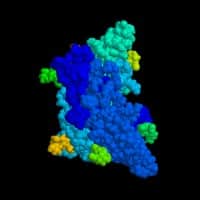Two international research teams have determined an antibody decreases fat while simultaneously boosting metabolism. Their studies involved mice yet it is believed the findings will also apply to humans. It is hoped that this breakthrough will help treat osteoporosis, obesity and a number of other conditions.
About FSH
It is known that a specific antibody targets follicle-stimulating hormones (FSH). These hormones increase when menopause occurs. Menopause is tied to a number of different health problems in women like the loss of bone density and an increase in weight gain. FSH is generated by the pituitary gland in mammals of both sexes. It spurs the growth of ovarian follicles in females and also regulates several reproductive processes. The antibody in question heightens bone mass, increases metabolism and decreases body fat in mice. It is believed that blocking FSH to counteract menopause symptoms will help treat conditions like cardiovascular disease, obesity, cancer, and osteoporosis.
About the Study
The two international research teams were supervised by Clifford J. Rosen, Li Sun, and Mone Zaidi. The teams performed their work at the Maine Medical Center Research Institute and the Icahn School of Medicine at Mount Sinai. They used a synthetic mouse antibody to key in on a 13-amino-acid sequence of a single subunit of FSH. The antibody was tested on female mice whose ovaries were removed. The removal of the ovaries caused high levels of FSH. The antibody was also tested on female and male mice that were provided with high-fat foods.
The Findings
In both instances, treatment using the antibody spurred fat loss and a faster metabolism. The results have intrigued scientists and medical professionals around the world. More extensive studies will be performed in the near future to determine if the findings are relevant to human health.




